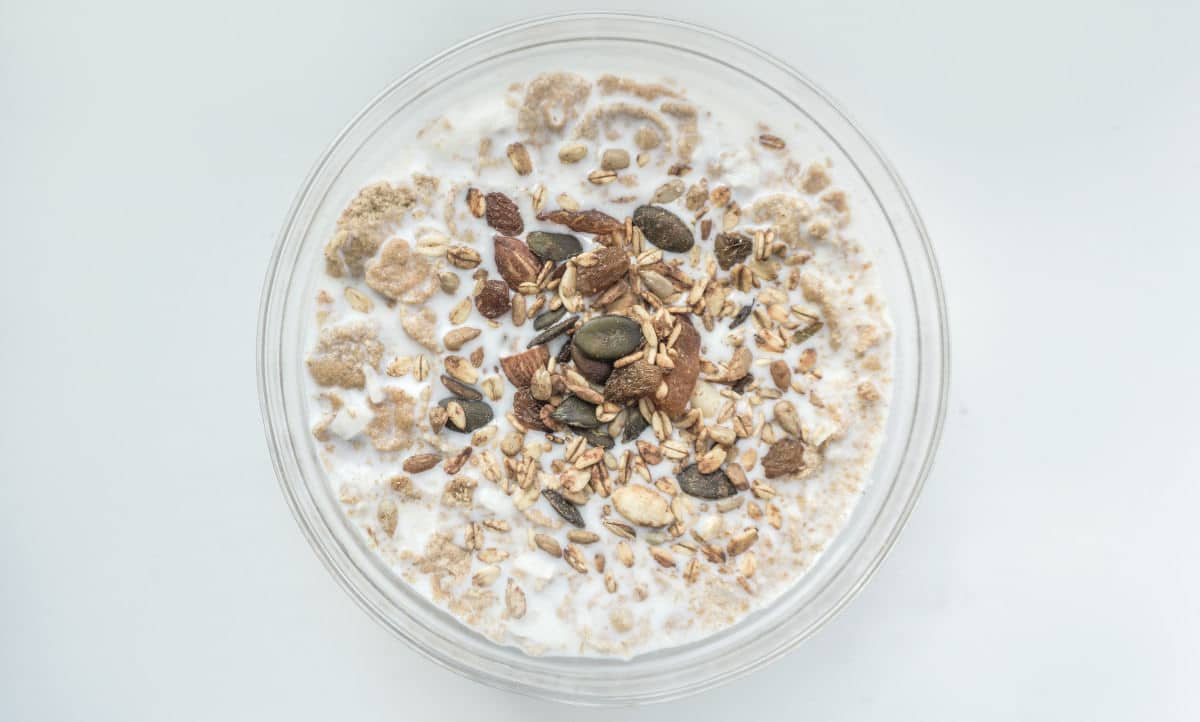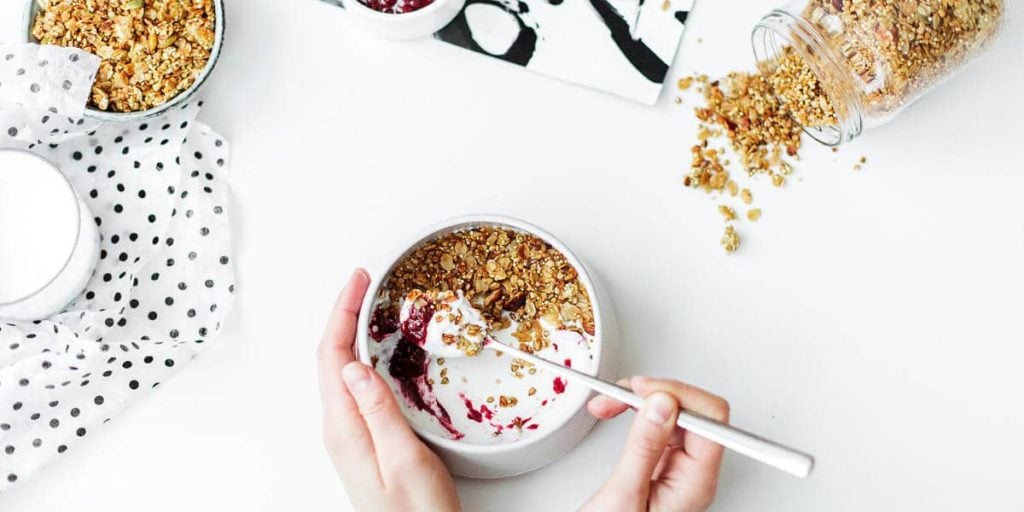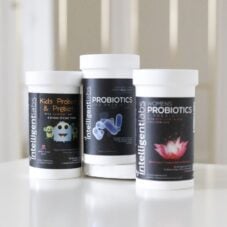Immunity
Probiotics and the Immune System – How Can They Help?
The coronavirus pandemic has led to a massive increase in sales and interest in immune boosting supplements, vitamins, and probiotics. People are looking to strengthen their immune system hoping that they will be strong and healthy enough to fight the virus. But can probiotics really help our immune system? Let’s find out!
Table of Contents
Probiotics and the Immune System
When trying to protect ourselves from the coronavirus (or any virus for that matter), besides the personal measures we take to avoid exposure, it’s also important to strengthen our immunity. This is where probiotics can help in multiple ways.
What Exactly Are Probiotics?
We all know about probiotics in food, and that they improve our gut health, but what exactly are they?
Probiotics are live microorganisms known for their health benefits on the host (this means us). Eating probiotic-rich food regularly can help maintain a positive balance in the gut microbiota (1). Probiotics have been found to enhance our natural immunity and adjust the pathogen-induced inflammation (2).
Moreover, there is a study reporting the beneficial role of probiotics against viral infection. According to a 2011 study, the intake of probiotics reduces the risk of acquiring common cold infections (3). Specifically, the supplementation of probiotics for 12 weeks resulted in a reduced risk of common cold episodes, the number of days with symptoms, frequency and severity of symptoms, and immune response in common cold infections.
How Can Probiotics Boost Our Immune System?
The connection between probiotic intake and the immune system was recently highlighted in a 2019 review. The study concluded that probiotic bacteria improve our immune systems through the activation of multiple immune mechanisms both at the gut and distant sites (4).
Similar findings were reported in another review that investigated the impact of probiotics on the regulation of immune health in humans. This review highlighted that the use of probiotics can protect us against infection, and stimulate an immune response (5).
Another study showed the importance of probiotics in a potential role in vaccine delivery, which may strengthen the effects of vaccination (6).

Less Exercise – Fewer Fruits and Vegetables = More Stress
Quarantine leads to increased stress, lack of physical activity, and reduced consumption of fresh fruits and vegetables. According to a 2017 study, probiotic supplementation increased the systemic immune response and protected against infection. It suggested that the use of probiotics can potentially minimize the damage induced during a stressful situation like the one we are facing now (7).
Sitting down the whole day isn’t uncommon for most of us. We don’t walk enough and our physical activity is limited. Moderate physical activity or moderate–regulated training has been shown to enhance the immune function (8). Moreover, research demonstrates that acute exercise is an immune system adjuvant leading to improved defense activity. Additionally, there is an inverse relationship between exercise training and illness risk (9).
At the same time, increased fruit and vegetable intake leads to improved immune function (10). However, the rules that governments have set, to force people to stay at home, plus the fear of being exposed to the coronavirus, reduce the chances for quality food and the chances of being able to buy fresh fruit and vegetables regularly.
Moreover, studies that examined the association between fruit and vegetable intake in asthma patients showed a protective effect against either systemic or airway inflammation (11).

Probiotics and Their Effect on Treating Constipation
Research demonstrates that dietary fiber intake can obviously increase stool frequency in patients with constipation (12). Physical activity and exercise can also help us to have a normal bowel function. Additionally, psychological stress which most people experience during the pandemic has long been known, both clinically and experimentally, to cause bowel dysfunction (13).
On top of that, constipation was significantly higher in children exposed to stressful life events (14). All these factors prove that getting stuck in quarantine can significantly affect the normal function of our bowel and lead to constipation.
Probiotics may improve whole gut transit time, stool frequency, and stool consistency, with subgroup analysis indicating beneficial effects of B. lactis in particular (15). There is also research showing that probiotics increase the number of weekly bowel movements by 1.3 times, and soften the stools, making them easier to pass (16). Another study showed that 70% of the patients taking probiotics were satisfied with their symptomatic relief of bowel movement frequency (17).
Conclusion
Being stuck at home affects not only our emotions but our overall health. The majority of people try to boost their immune system by getting vitamin supplements.
Probiotics are scientifically proven to boost our immune system and they’ve proven to be a necessity nowadays. These microorganisms can help us overcome any bowel dysfunction due to inactivity, stress, and reduced fruit and vegetable intake. Additionally, there is evidence that prebiotics can improve your immune system by increasing the population of protective microorganisms (18).
With that said, we recommend you check out our Adult Probiotics and Prebiotics supplement as it can help your body function properly and build your immunity, too.
💬 Something on your mind? Share your thoughts in the comments. We love hearing from curious minds.
📩 And while you’re here, join our newsletter for more smart stuff (and secret perks)!
References:
(1) Kim, D., Yoo, S. and Kim, W., 2016. Gut microbiota in autoimmunity: potential for clinical applications. Archives of Pharmacal Research, 39(11), pp.1565-1576.
(2) Yan, F. and Polk, D., 2011. Probiotics and immune health. Current Opinion in Gastroenterology, 27(6), pp.496-501.
(3) Berggren, A., Lazou Ahrén, I., Larsson, N. and Önning, G., 2010. Randomised, double-blind and placebo-controlled study using new probiotic lactobacilli for strengthening the body immune defence against viral infections. European Journal of Nutrition, 50(3), pp.203-210.
(4) Maldonado Galdeano, C., Cazorla, S., Lemme Dumit, J., Vélez, E. and Perdigón, G., 2019. Beneficial Effects of Probiotic Consumption on the Immune System. Annals of Nutrition and Metabolism, 74(2), pp.115-124.
(5) Ganjbakhsh SE, Rezaee P. The effect of probiotics on immune system. J Bacteriol Mycol Open Access. 2017;5(4):319‒320.
(6) Marieta Georgieva, Kaloyan Georgiev and Peter Dobromirov (November 18th 2015). Probiotics and Immunity, Immunopathology and Immunomodulation, Krassimir Metodiev, IntechOpen, DOI: 10.5772/61337. Available from: https://www.intechopen.com/books/immunopathology-and-immunomodulation/probiotics-and-immunity
(7) Martin Manuel, P., Elena, B., Carolina, M. and Gabriela, P., 2017. Oral probiotics supplementation can stimulate the immune system in a stress process. Journal of Nutrition & Intermediary Metabolism, 8, pp.29-40
(8) Romeo, J., Wärnberg, J., Pozo, T. and Marcos, A., 2010. Physical activity, immunity and infection. Proceedings of the Nutrition Society, 69(3), pp.390-399.
(9) Nieman, D. and Wentz, L., 2019. The compelling link between physical activity and the body’s defense system. Journal of Sport and Health Science, 8(3), pp.201-217.
(10) Gibson, A., Edgar, J., Neville, C., Gilchrist, S., McKinley, M., Patterson, C., Young, I. and Woodside, J., 2012. Effect of fruit and vegetable consumption on immune function in older people: a randomized controlled trial. The American Journal of Clinical Nutrition, 96(6), pp.1429-1436.
(11) Hosseini, B., Berthon, B., Wark, P. and Wood, L., 2017. Effects of Fruit and Vegetable Consumption on Risk of Asthma, Wheezing and Immune Responses: A Systematic Review and Meta-Analysis. Nutrients, 9(4), p.341.
(12) Yang, J., 2012. Effect of dietary fiber on constipation: A meta analysis. World Journal of Gastroenterology, 18(48), p.7378.
(13) Chang, Y., El-Zaatari, M. and Kao, J., 2014. Does stress induce bowel dysfunction?. Expert Review of Gastroenterology & Hepatology, 8(6), pp.583-585.
(14) Devanarayana, N. and Rajindrajith, S., 2009. Association between Constipation and Stressful Life Events in a Cohort of Sri Lankan Children and Adolescents. Journal of Tropical Pediatrics, 56(3), pp.144-148.
(15) Dimidi, E., Christodoulides, S., Fragkos, K., Scott, S. and Whelan, K., 2014. The effect of probiotics on functional constipation in adults: a systematic review and meta-analysis of randomized controlled trials. The American Journal of Clinical Nutrition, 100(4), pp.1075-1084.
(16) Publishing, H., 2018. Health Benefits Of Taking Probiotics – Harvard Health. [online] Harvard Health. Available at: https://www.health.harvard.edu/vitamins-and-supplements/health-benefits-of-taking-probiotics
(17) Kim, S., Choi, S., Park, K., Park, M., Shin, J., Lee, T., Jung, K., Koo, H. and Myung, S., 2015. Change of Fecal Flora and Effectiveness of the Short-term VSL#3 Probiotic Treatment in Patients With Functional Constipation. Journal of Neurogastroenterology and Motility, 21(1), pp.111-120.
(18) Davani-Davari, D., Negahdaripour, M., Karimzadeh, I., Seifan, M., Mohkam, M., Masoumi, S., Berenjian, A. and Ghasemi, Y., 2019. Prebiotics: Definition, Types, Sources, Mechanisms, and Clinical Applications. Foods, 8(3), p.92.





